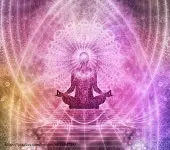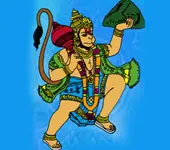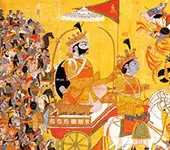Human Nature - Comples Mix Of Good And Bad
Comments
Who all performed Ashwamedha Yagna?
In ancient India, several kings are said to have performed the Ashwamedha Yagna to demonstrate their power and authority over neighboring kingdoms. Some of the most famous kings who performed the Ashwamedha Yagna are: 1. King Dasharatha: King Dasharatha is a legendary king from the Hindu epic Ramayana. He performed the Ashwamedha Yagna to have a child and was blessed with four sons, including Lord Rama. 2. King Yudhishthira: King Yudhishthira is a legendary king from the Hindu epic Mahabharata. He performed the Ashwamedha Yagna after the great war of Kurukshetra to establish his authority over the defeated kingdoms. 3. King Janaka: King Janaka was a king from the ancient kingdom of Mithila. He performed the Ashwamedha Yagna to demonstrate his power and authority as a king. 4. King Harsha: King Harsha was a 7th-century king who ruled over northern India. He performed the Ashwamedha Yagna to demonstrate his power and to gain the support of his subjects. 5. King Samudragupta: King Samudragupta was a 4th-century king who ruled over a large part of ancient India. He performed the Ashwamedha Yagna to establish his authority over the kingdoms that he had conquered. These are just a few examples of the many kings who performed the Ashwamedha Yagna in ancient India. The ritual was considered to be a symbol of the king's power and authority over his subjects and neighboring kingdoms.
Which rivers meet at Triveni Sangam?
Ganga, Yamuna and Saraswati.
Quiz
Which is the birth place of Thiruvalluvar?Recommended for you
Satyavati And Parashar

Learn about the mysterious circumstances behind the birth of Sage Vyasa.....
Click here to know more..Durga Sapta Shlokee- the most powerful and complete Durga meditation
 Click here to know more..
Click here to know more..
Hanuman Aarti

aaratee keejai hanumaana lalaa kee. dusht'a dalana raghunaatha kalaa kee. jaake bala se giravara kaampe. roga dosha jaake nikat'a na jhaanke. anjanee ....
Click here to know more..Excerpt
Excerpt
Human nature is always a mix of both good and not-so-good.
Exceptions are avataras like Sri Rama and Sri Krishna and some enlightened Sages.
But then you can't equate then with normal humans.
The constant endeavor should be to minimize the evil side and grow the noble side.
This is the whole purpose of human birth - to elevate your atma.
This mixed human nature is quite evident right from the beginning.
Let's see the cases of Pururava and Nahusha.
Vaiavaswata Manu was the progenitor of all the humans in our present Manwantara.
He has 60 Kshatriya sons.
They all fought with each other and perished.
Then Pururava was born as the son of Ila and Budha graha.
The way Mahabharata describes Pururava, the mixed human nature is evident.
त्रयोदश समुद्रस्य द्वीपानश्नन् पुरूरवाः - Pururava ruled over the 13 islands of all the oceans, means he rules over the entire earth.
अमानुषैः वृतः सत्त्वैः मानुषः सन् पुरूरवाः - He was himself a human being but he was surrounded by, served by superhuman beings such as Yakshas and Gandharwas.
He only brought the three kinds of Agni to earth from Gandharwa Loka.
But then what was his dark side ?
विप्रैः सह विग्रहं चक्रे वीर्योन्मत्तः पुरूरवाः - Intoxicated with his power, he harassed and tormented noble and learned tapaswis.
जहार च स विप्राणां रत्नान्युत्क्रोशतामपि - he looted them.
Not because he needed their wealth, just to show his power.
Sanatkumara came from Brahmaloka and tried to advice him but he didn't bother.
Then finally, Rishis had to curse him to get rid of him.
Nahusha was his grandson.
Nahusha was so great that he even became Indra, the ruler of Swarga Loka for a short while.
He is said to have ruled righteously.
He ruled over Devas, Rishis, Pitrus, Gandharwas, Nagas, and Rakshasas in addition to human beings.
राज्यं शशास सुमहद् धर्मेण पृथिवीपते।
पितॄन देवान् ऋषीन् विप्रान् गन्धर्वोरगराक्षसान्॥
He destroyed robbers and dacoits but he also imposed tax even on Rishis.
ऋषीन् करमदापयत्
पशुवच्चैव तान् पृष्ठे वाहयामास वीर्यवान्
He made Rishis carry his palanquin. that much was his arrogance.
Once while carrying his palanquin, Nahusha kicked Sage Agastya shouting at him to move fast.
Agastya cursed him.
He became a snake amd fell down on earth.
What does this show?
You have to consciously cultivate good qualities.
But evil nature comes on its own particularly with power and position.
It not only nullifies the goodness in the person but also causes his downfall.
We have to be always vigilant about this.

English Topics
Mahabharatam
Click on any topic to open
- 96 Two Curses That Worked against Karna
- 95 What is behind Calling the Five Brothers the Pandavas
- 94 Give up an Individual IF....
- 93 Fascinating Birth Story of the Kauravas
- 92 Overcoming Grief - Lessons from King Senajit's story
- 91 Yayati's Wisdom
- 90 Yayati's Story
- 89 Brahmacharis Can Bless And Curse
- 88 Human Nature - Comples Mix Of Good And Bad
- 87 Results Of Good Karma
Please wait while the audio list loads..
30
Ganapathy
Shiva
Hanuman
Devi
Vishnu Sahasranama
Mahabharatam
Practical Wisdom
Yoga Vasishta
Vedas
Rituals
Rare Topics
Devi Mahatmyam
Glory of Venkatesha
Shani Mahatmya
Story of Sri Yantra
Rudram Explained
Atharva Sheersha
Sri Suktam
Kathopanishad
Ramayana
Mystique
Mantra Shastra
Bharat Matha
Bhagavatam
Astrology
Temples
Spiritual books
Purana Stories
Festivals
Sages and Saints
